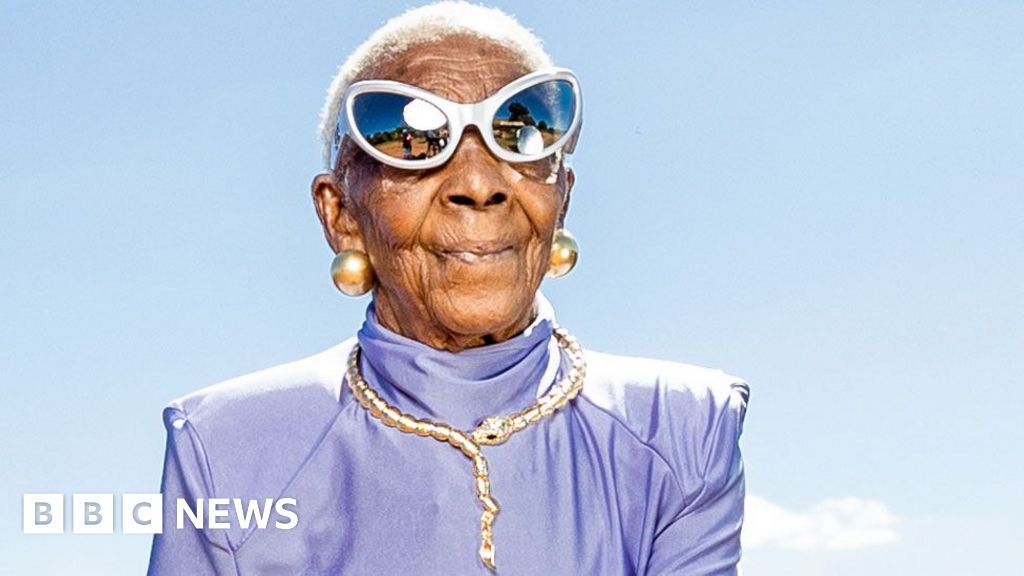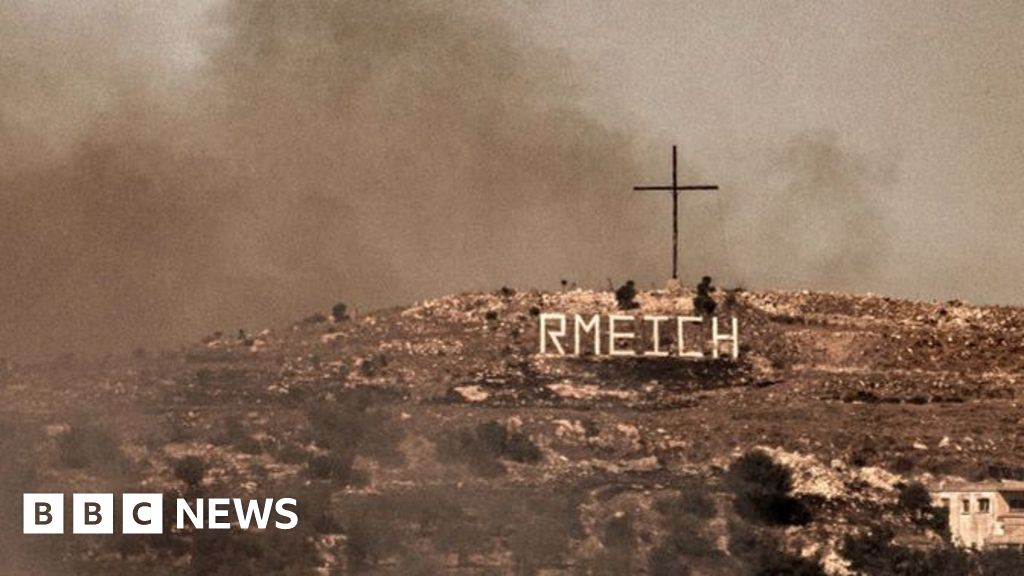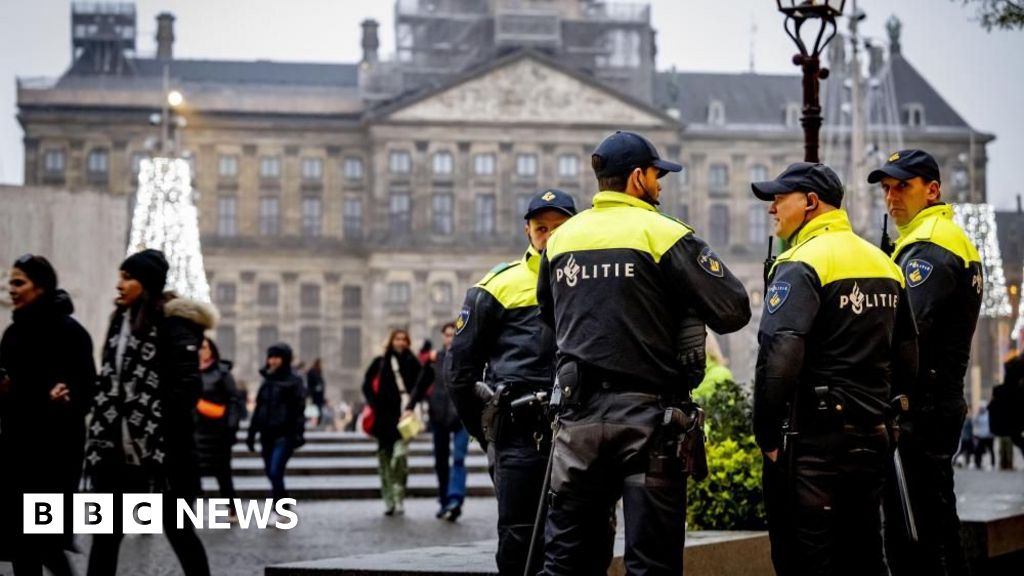ARTICLE AD BOX
Watch: Video shows hundreds of migrants at Belarus' border with Poland
Poland's Prime Minister has accused Russian President Vladimir Putin of being behind a migrant crisis at Belarus's border with Poland.
Mateusz Morawiecki said that Belarus's authoritarian leader, a close ally of Mr Putin, is orchestrating the crisis, but "it has its mastermind in Moscow".
At least 2,000 migrants are stuck at the border in freezing conditions.
Belarus's leader Alexander Lukashenko denies claims it is sending people over the border in revenge for EU sanctions.
Video footage shows crowds of people on the Belarusian side of a barbed-wire border fence with Poland. Some try to force their way through using bolt cutters, tree trunks and group force, while Polish guards fend them off with what appears to be tear gas.
Many of the migrants are young men but there are also women and children, mostly from the Middle East and Asia. They are camping in tents just inside Belarus, trapped between Polish guards on one side, and Belarusian guards on the other, unable to enter Poland or retreat back into Belarus.
Overnight temperatures at the border have slumped below zero and several people have already died in recent weeks.
Speaking on Tuesday at an emergency parliamentary session after visiting troops on the border, Mr Morawiecki said: "This attack which Lukashenko is conducting has its mastermind in Moscow, the mastermind is President Putin."
He accused the Russian and Belarusian leaders of trying to destabilise the European Union - which the two countries are not part of - by allowing migrants to travel through Belarus and enter the bloc.
Mr Morawiecki described the situation as "a new type of war in which people are used as human shields", and said Poland was dealing with a "stage play" which is designed to create chaos in the EU.
He added that it was the first time in 30 years that Poland's border security had been so "brutally attacked".
Poland has deployed extra troops to the border, and warned of a possible "armed" escalation, fearing that Belarus might try to provoke an incident.
Poland, Lithuania and Latvia, which are all part of the EU, have seen a surge in the number of people trying to enter their countries illegally from Belarus in recent months. On Tuesday, Lithuania declared a state of emergency on its border with Belarus, which will come into effect at midnight.
Poland has seen the most arrivals, especially around its major border crossing at Kuznica.
Poland has been accused of pushing migrants back across the border into Belarus, contrary to international rules of asylum. Journalists and aid agencies have been banned from accessing the area.
"Nobody is letting us get in anywhere, Belarus or Poland," 33-year-old Shwan Kurd from Iraq told the BBC by video-call.
He described how he had arrived in Belarus's capital, Minsk, from Baghdad at the start of November, and was now in a make-shift camp metres from Poland's barbed-wire fence.
"There's no way to escape," he said. "Poland won't let us in. Every night they fly helicopters. They don't let us sleep. We are so hungry. There's no water or food here. There are little children, old men and women, and families."
Image source, Shwan Kurd
Image caption,Shwan Kurd told the BBC how many of the migrants were trapped between Polish and Belarusian guards
The EU, Nato and the US all accuse Belarus of coordinating the surge of migrants. The European Commission has accused Mr Lukashenko of luring migrants with the false promise of easy entry to the EU as part of an "inhuman, gangster-style approach".
Brussels says his actions are a retaliation against EU sanctions, which were imposed after his widely discredited re-election and subsequent crackdown on mass protests.
Activists say the migrants are being used as pawns in a political game between Belarus and its EU neighbours.
Lithuania
Lithuania has also moved troops to its border with Belarus to prepare for a possible influx of migrants. Its government said declaring a state of emergency was a precautionary response.
About two dozen migrants who were detained in Lithuania after illegally crossing over from Belarus were suspected of having links to terrorist organisations, Lithuania's vice interior minister Kestutis Lancinskas told the BBC.
Most of them presented fake IDs when they were stopped and background checks are still ongoing, Mr Lancinskas said. He could not comment on which terrorist organisations may have links with the migrants, nor when they were detained.
"There is always a certain level of risk when there's a large number of people crossing the border," Mr Lancinskas said.
"All member states have a level of terrorism threat. Our intelligence services are doing their best to prevent those kinds of activities."
What does Belarus say?
In an interview with the Belarusian state news agency, Mr Lukashenko said he wanted to avoid any military escalation on the border which could draw Russia into a conflict.
He said he was "not a madman" and knew what was at stake, but remained defiant, saying "we will not kneel down".
The Belarus defence ministry has accused Warsaw of violating agreements by moving thousands of troops to the border.
Belarus insists migrants are arriving there legally and that it is merely acting "as a hospitable country".
Russia has praised its ally's "responsible" handling of the border row and said it is watching the situation closely.
Image source, Shwan Kurd
Image caption,At least 2,000 migrants, including women and children, are struggling through freezing temperatures at the Poland-Belarus border
Are you in the area? Have you been affected by what's been happening? You can get in touch by emailing haveyoursay@bbc.co.uk.
Please include a contact number if you are willing to speak to a BBC journalist. You can also get in touch in the following ways:
If you are reading this page and can't see the form you will need to visit the mobile version of the BBC website to submit your question or comment or you can email us at HaveYourSay@bbc.co.uk. Please include your name, age and location with any submission.

 3 years ago
25
3 years ago
25









 English (US)
English (US)